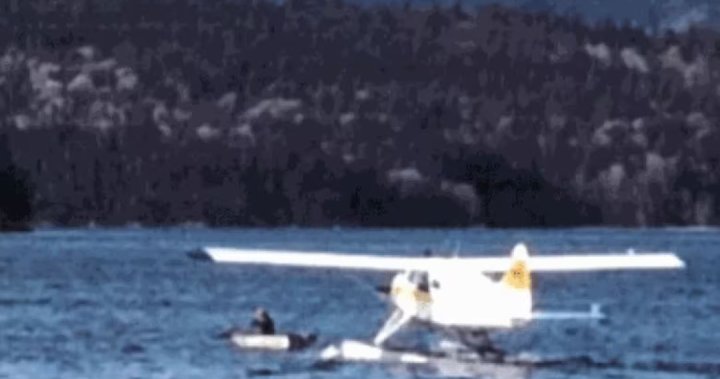Nearly a decade ago, Andrew Stones was struck by a seaplane on the Sunshine Coast while rowing his skiff to his houseboat at Porpoise Bay in April 2015. The retiree heard the plane coming and realized it was accelerating towards him. He tried to wave his oar to get the pilot’s attention, but ultimately had to jump out of the path of the plane, which then collided with his skiff. Stones miraculously escaped uninjured and later took the company to court and won. While he cannot disclose the details of the payout, it was described as substantial in court documents.
After witnessing a recent Harbour Air plane crash in Vancouver’s Coal Harbour, Stones decided to speak out about his own experience. Last Saturday, a Harbour Air float plane crashed into a small boat, seriously injuring two people on board the boat. Fortunately, no injuries were reported for those on board the plane. The federal Transportation Safety Board of Canada is currently investigating the incident. Stones expressed a desire to see stricter regulations for seaplane operators following the recent crash and his own previous experience, as he believes nothing was done to improve safety procedures after his own collision.
Stones criticized the lack of action taken by the seaplane company after his crash, stating that they did not have to comply with any regulations or change their procedures. He believes that there should be more accountability and oversight for seaplane operators to prevent similar accidents from occurring in the future. Global News reached out to Harbour Air for comment on the situation, but there has been no response from the company. Stones hopes that by sharing his story and advocating for stricter regulations, he can prevent future crashes and ensure the safety of both seaplane passengers and those on the ground.
The incident involving Stones and the seaplane collision serves as a reminder of the potential dangers of seaplane travel and the importance of safety regulations. While Stones was fortunate to escape unscathed from the crash, it could have resulted in a tragic outcome. The recent crash in Vancouver highlights the need for increased safety measures and oversight in the seaplane industry to prevent similar incidents from happening in the future. It is crucial that both the seaplane operators and regulatory authorities take proactive steps to ensure the safety of passengers and those on the ground.
Stones’ decision to take legal action against the seaplane company demonstrates the importance of holding operators accountable for their actions and ensuring that they take responsibility for any lapses in safety procedures. By speaking out about his experience and advocating for stricter regulations, Stones is helping to raise awareness about the potential risks associated with seaplane travel and the need for improved safety standards. His efforts could lead to positive changes in the industry and help prevent future accidents from occurring. It is essential that all stakeholders work together to prioritize safety and prevent incidents like the one Stones experienced from happening again.













